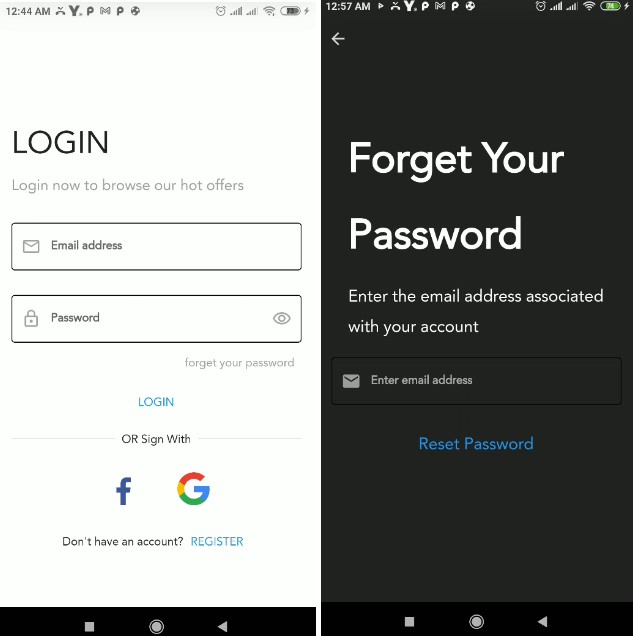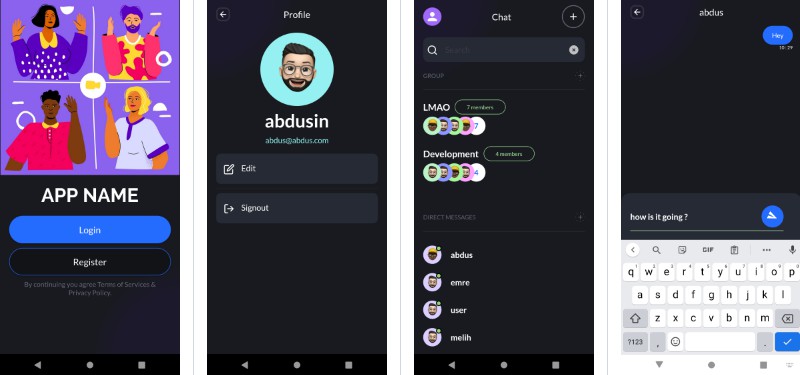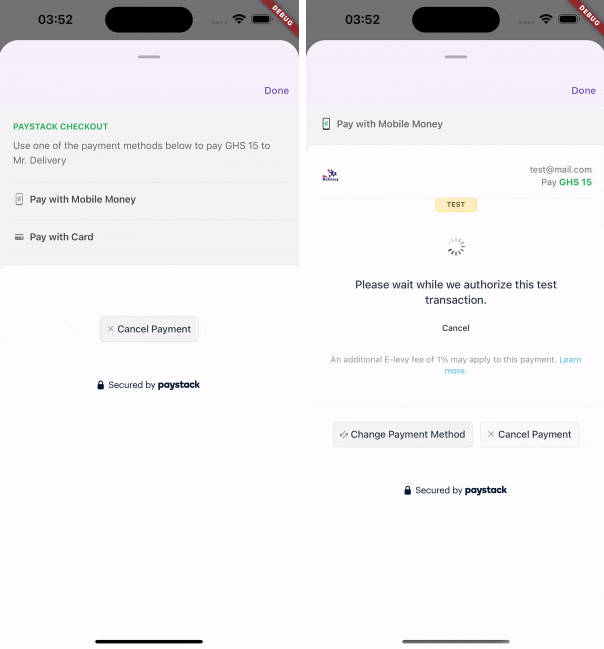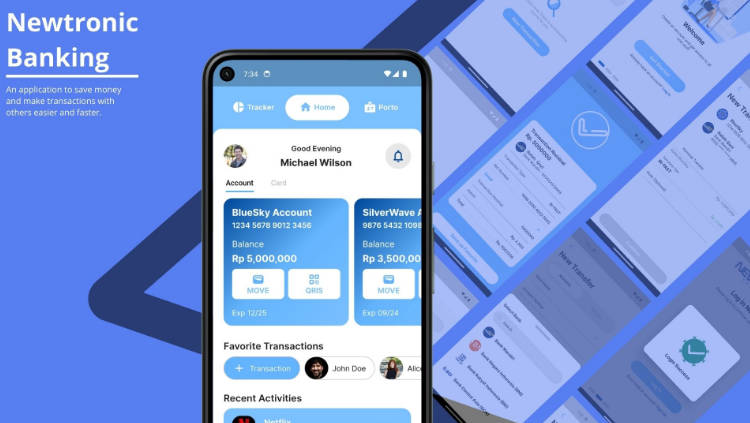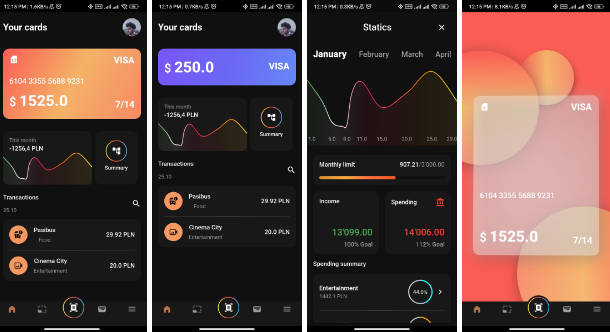payflow_app
A Flutter project to manage bank slip
Getting Started
Start project in cmd: flutter create application_name – create app code application_name – open vscode
Parts of creation
- Define Theme (color, images, font)
- Create Screens
How to know the size of cellphone
final size = MediaQuery.of(context).size;
- use example: Container( width: size.width, height: size.height * 0.40 – takes up 40% of the screen )
How add delay (wait especific time):
await Future.delayed(Duration(seconds: 2));
How add border in Container
decoration: BoxDecoration( borderRadius: BorderRadius.circular(5), border: Border.fromBorderSide(BorderSide(color: Colors.grey)) ),
News Widgets
InkWell – it’s iqual GestureDetector but have a effect when tap Positioned – put the widget where you want ex: Positioned( top: 35, left: 0, right: 0, child: Image.asset(AppImages.person) ), PreferredSize – add size in appBar ex: appBar: PreferredSize( preferredSize: const Size.fromHeight(128), child: … ), Text.rich + TextSpan – add diferents fontStyles at text ex: Text.rich( TextSpan( text: “Olá, “, style: AppTextStyles.titleListTile, children: [ TextSpan( text: “Caroline”, style: AppTextStyles.titleBoldBackground ) ] ), ) RotatedBox – deixa a tela em vertical – rotaciona 90* ex: return SafeArea( top: true, bottom: true, left: true, right: true, child: RotatedBox( quarterTurns: 1, child: Scaffold
ATALHOS
shift + alt + f – indenta o código
ERROS
JAVA_HOME is not set and no ‘java’ command could be found in your PATH – to solve, watch this video https://www.youtube.com/watch?v=Sbic3aMCwhY
Como configurar o firebase no projeto:
- Fazer processo de instalação
- Adicionar no pubspec.yaml o firebase_core
- Inicializar o firebase – inicialização está na classe AppFirebase (main.dart)
- Adicionar no pubspec.yaml o google_sign_in
- Firebase > authentication > sign-in method adicionar o google como provedor de login
- Criar classes de loginController (utiliza os métodos do google_sign_in para logar o usuário) e authController (verifica se o usuário já existe, se sim direciona para a tela home e se não, mantem na tela de login)
- Instanciar LoginController e chamar ela quando clicar no botão
Como utilizar SharedPreferences:
- Adicionar pacote shared_preferences no pubspec.yaml
- Na classe de autenticação AuthController, adicionar métodos saveUser (salva o usuário) e currentUser (verifica se esse usuário já logou no app, se já tiver logado não vai passar na tela de login)
- Criar UserModel – essa model terá as informações do usuário e os métodos para converter os dados em Map, Json ou String – essas conversões são muito importantes, pois sem elas a AuthController não funciona corretamente
- Na tela de splash, instanciar a classe e chamar o método currentUser. obs: as principais classes que fazem tudo acontecer é a UserModel e a AuthController
Como adicionar rotas nomeadas ao projeto
- No main, adicionar routes (todas as telas de seu app) e initialRoute (tela inicial) return MaterialApp( title: “Pay Flow”, initialRoute: “/home”, routes: { “/splash”: (context) => const SplashPage(), “/login”: (context) => const LoginPage(), “/home”: (context) => const HomePage(), } );
- No momento de navegar entre as telas, você vai chamá-las da seguinte forma: Navigator.pushNamed(context, “/login”);
